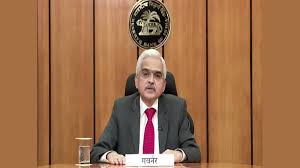Inflation is very much on the Reserve Bank of India’s (RBI) radar as food prices spiral.
RBI Governor Shaktikanta Das said that the central bank must be ready to pre-empt any second-round impact of food price shocks on inflation. This led Das and other members of the monetary policy committee (MPC) to keep the repo rate unchanged at the bi-monthly policy earlier in the month while stating that the central bank should be ready to act if there is a need.
Headline consumer price index (CPI) inflation is expected to harden significantly in July-August, driven by the spike in tomato and other vegetable prices, Das said as per the minutes of the MPC meeting released on Thursday.
The latest CPI data, which was released after the monetary policy review, showed that retail inflation surged to a 15-month high of 7.44% in July from 4.81% in June. This was the first time in the current financial year that retail inflation breached past the RBI’s upper tolerance limit of 6%.
“We need to be ready to pre-empt any second-round impact of food price shocks on the broader inflationary pressures and risks to anchoring of inflation expectations. The impact of the cumulative rate hike of 250 basis points on the economy is still playing out. Considering all these aspects, I vote to keep the policy repo rate unchanged at 6.50% with preparedness to act, should the situation so warrant,” Das said.
“Headline inflation has softened from last year’s elevated level but it still rules above the target. Our task is still not over,” Das added.
All six members of the MPC decided to vote unanimously to keep the repo rate unchanged at 6.50% earlier this month.
RBI deputy governors also voiced concerns on inflation. “Monetary policy tightening by a cumulative increase of 250 basis points in the policy rate contributed 130 basis points of disinflation, while the waning of supply shocks contributed 140 basis points and other factors offset each other,” said RBI deputy governor Michael Debabrata Patra.
“At the current juncture, however, the gains in output stabilisation are being threatened by the incidence of sporadic supply shocks which elevate the general level of prices instead of dissipating through relative price adjustments within the budget constraint,” Patra added.
He said that while short-lived supply demand mismatches lie outside the realm of monetary policy, the commitment to price stability requires the RBI to see off these price perturbations by guarding against spillovers – in India. “Ensuring the sustained easing of core inflation is crucial to the MPC’s objective of bringing inflation down to the target,” Patra said.
Inflation readings would be well above the tolerance band for a couple of months, said Jayanth Varma, independent member of the MPC. “I view these monthly gyrations with some degree of equanimity. Just a couple of low readings do not call for panic. What is important is the projected trajectory of inflation over the next several quarters,” he added.
Headline inflation forecasts have risen in the short term but remain slightly above 5% over the next year so that a repo rate of 6.5% still gives a positive real rate of around unity. “This is the apt real rate given the uncertainties in both growth and inflation,” said MPC Member Ashima Goyal.
“While the impact of our actions so far continues to play out in the economy, our job is not yet fully over,” said RBI executive director Rajiv Ranjan. The costs of high inflation regime are simply too high to take any chances, he added.
The MPC decided to remain focused on withdrawal of accommodation to ensure that inflation progressively aligns with the target, while supporting growth. RBI said the decisions are in consonance with the objective of achieving the medium-term target for CPI inflation of 4% within a band of +/- 2%, while supporting growth. MPC comprises the RBI governor, two officials of the central bank and three government nominated independent members.




